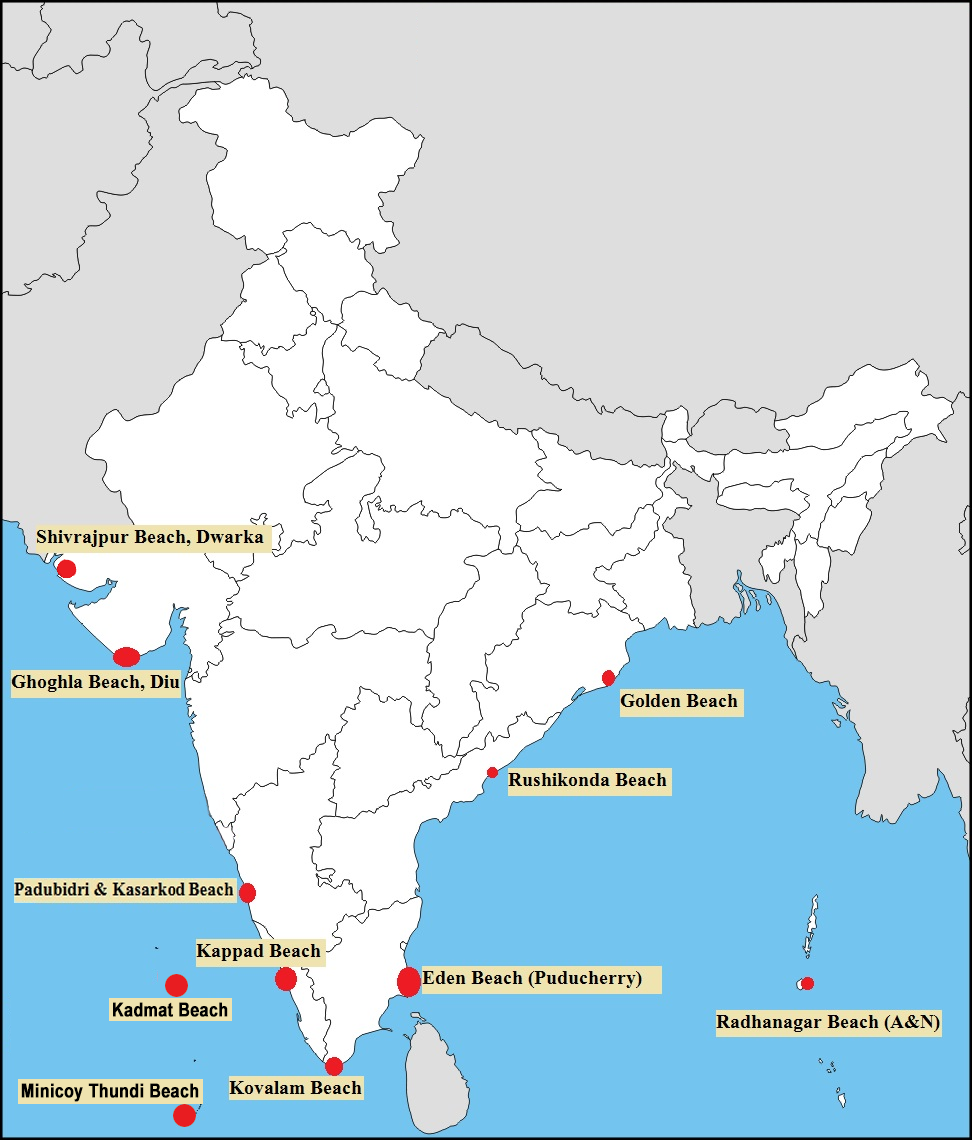Blue Flag Certification | 27 Oct 2022
For Prelims: UNEP, UNWTO, Foundation for Environmental Education (FEE), IUCN.
For Mains: Blue Flag certification and its Significance.
Why in News?
Recently, the Blue Flag certification has been accorded to two new beaches - Minicoy Thundi Beach and Kadmat Beach- both in Lakshadweep.
- This takes the number of beaches certified under the Blue Flag certification to 12.
What is Blue Flag Certification?
- About:
- It is an internationally recognised eco-label that is accorded based on 33 criterias. These criterias are divided into 4 major heads namely,
- Environmental education and information
- Bathing water quality
- Environmental management
- Conservation and safety services in the beaches
- Blue Flag beaches are considered the cleanest beaches of the world. It is an eco-tourism model endeavouring to provide the tourists/beachgoers clean and hygienic bathing water, facilities, a safe and healthy environment and sustainable development of the area.
- It is accorded by the international jury composed of eminent members - United Nations Environment Programme (UNEP), United Nations World Tourism Organisation (UNWTO), Denmark-based NGO Foundation for Environmental Education (FEE) and International Union for Conservation of Nature (IUCN).
- On the lines of Blue Flag certification, India has also launched its own eco-label BEAMS (Beach Environment & Aesthetics Management Services).
- It is an internationally recognised eco-label that is accorded based on 33 criterias. These criterias are divided into 4 major heads namely,
- Other 10 Beaches which have Received the Certification:
- Shivrajpur (Gujarat)
- Ghoghla (Daman & Diu)
- Kasarkod (Karnataka)
- Padubidri beach (Karnataka)
- Kappad (Kerala)
- Rushikonda (Andhra Pradesh)
- Golden beach (Odisha)
- Radhanagar beach (Andaman and Nicobar)
- Kovalam (Tamil Nadu)
- Eden (Puducherry)
What is BEAMS?
- Beach Environment & Aesthetics Management Services comes under ICZM (Integrated Coastal Zone Management) project.
- This was launched by the Society of Integrated Coastal Management (SICOM) and the Union Ministry of Environment, Forest and Climate Change (MoEFCC).
- The objectives of BEAMS program are to:
- Abate pollution in coastal waters,
- Promote sustainable development of beach facilities,
- Protect & conserve coastal ecosystems & natural resources,
- Strive and maintain high standards of cleanliness,
- Hygiene & safety for beachgoers in accordance with coastal environment & regulations.
- It has helped in saving 1,100 ml/year of municipal water through recycling; educating around 1,25,000 beachgoers about responsible behaviour at the beaches; providing alternate livelihood opportunities to 500 fishermen families through pollution abatement, safety and services and has also increased footfall for recreation activities at the beaches by approximately 80% leading to economic development.
Source: IE

